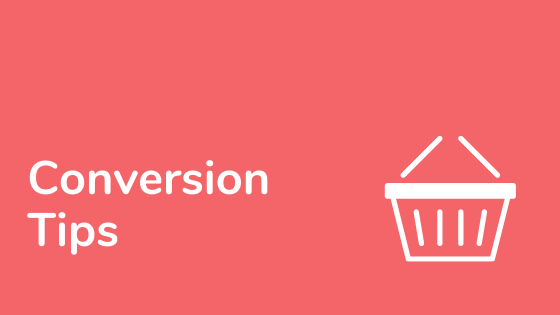Pouring time into your SEO efforts but not getting many conversions? Ultimately you can be receiving all the traffic in world but if you are not taking the right steps to convert your traffic you are wasting your time.
1. Find & focus on the right keywords
Prospecting and selecting the right keywords to focus your SEO campaign on is without a doubt the most important aspect of SEO. It can make or break your business and SEO efforts.
Here are 3 tips to help you select the right keywords:
Think about the buyers journey
When someone makes a search online they will be at one of three stages of the buyers journey.
Awareness, Consideration or Decision.
Awareness – The user is aware they have a problem or opportunity but they don’t know exactly what it is yet. They will begin researching around a particular area.
“Why am I not getting traffic to my website”
Consideration – The user has defined their issue and is now searching for potenial solutions.
“How to do SEO”
Decision – The user has addressed their issue, researched solutions and now they are choosing how to deal with their solution or opportunity.
Most people focus on the latter stage, which in theory is the best thing to do as these users are ready to convert but it’s crucial to look beyond this and also attract potenial consumers that are not this far down the buyers journey.
Map the stages out in your keyword research document to help you decide which phrases to focus on. Blog posts are a good way to cover awareness and consideration style pieces.
Review competition
When I say review the competition I don’t just mean look at the competition scores given to you by various keyword tools. Actually manually search the keywords and scope out the other websites that are ranking.
You can audit these websites to get a feel for whether you can outrank them or not. High authority websites like Wikipedia, famous blogs and industry leading websites are difficult to compete against.
You can check the domain authority of these sites to get a feel for the level of competition by using – domain authority checker.
Be realistic with search volumes
Remember that just because a keyword get’s 5000 searches a month does not mean that you will receive all of this traffic. Here are the click-through-rates for mobile & desktop for rank 1-10 on Google:

This is UK based data for both unbranded & branded keywords from 1,624,880 keywords for 33,173 websites.
You can use this data to construct traffic estimates for yourself when you are ranking for your selected keywords.
2. Get your foundations in check
If the foundations of your website are not in order then you could be missing out on conversions. Make sure the following three things are in place to maximise conversions on your website:
1. Sitespeed
As well as page speed being a ranking factor in Google’s algorithm if your website takes ages to loads its likely consumers will leave your website and potentially go to a competitors.
Use Google’s page speed insights tool to get a score on your website speed and recommendations on how to fix any issues.
2. Structure
If you site structure is all over the place and it’s difficult to navigate around your website it’s likely consumers will get lost and leave. Additionally Google may struggle to crawl your website effectively especially if your sitemap is not optimised well.
3. CTA’s
Display clear call-to-actions to help direct your traffic to actions you want them to take such as a newsletter sign up, form submission or product purchase. A/B test CTA colours, placements & text using Optimize Google to steadily improve your conversion rates year on year.
3. Create killer content
I don’t need to preach this, we all know content is king. Produce killer content that captivates your audience, don’t just churn out blog post after blog post. Look at expanding out and also creating the following types of content;
-
Video
-
Infographics
-
Case studies
-
In-depth guides
-
Podcasts
-
Interviews
4. Stand out in search
Ranking for good keywords but not getting much traffic? Do the following 5 things to help stand out on the search engine results pages:
-
Write engaging Meta descriptions
-
Build compelling SEO page titles
-
Optimise for Featured Snippets
-
Use Structured Data Markup
-
Customise your URL’s
5. Dabble in data
You don’t need to be a data expert to make informed decisions to aid your marketing efforts.
You can use tools like Hotjar, Crazy Egg & Mouseflow to look at heat maps and scroll tracking data to make powerful adjustments to your website to increase conversions. You can also use Google Analytics to your advantage even if you have very little knowledge on how to use it.
Here are some metrics & features you should be analysing in your Google Analytics data to improve conversion rates.
-
Bounce rate
-
Behaviour Flow
-
Goals
-
Average Session Duration
If you need a hand optimising your website for conversions you can request a free strategy call with us.
In this session we will discuss a solid growth roadmap for your business covering digital marketing channels & tactics that you should be utilising.







